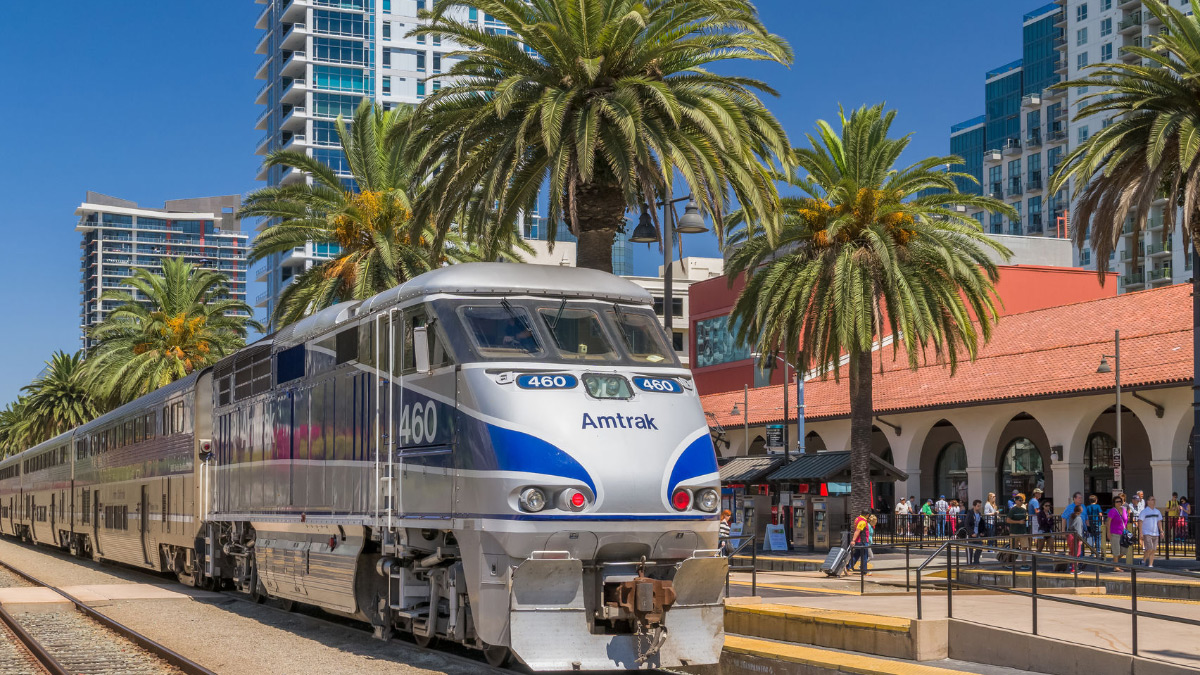Over the last two days, I’ve written a couple of articles about Amtrak that have elicited strong responses from readers (here’s the first, and here’s the second). I’d like to take a moment to consider the claim that subsidies for Amtrak, airports, and highways create economic development. This might be true at the very local level, but it isn’t likely to be true at the national level.
At the local level, there might be good arguments for subsidizing planes, trains, and automobiles, but if this is the case then the beneficiaries should be the ones who pay the taxes to support the infrastructure. In other words, people in Birmingham, not people in Boston, should be the ones who pay for Shuttlesworth International Airport. One could argue that as a matter of justice relatively wealthy Bostonians should be taxed to pay for airports, harbors, and train stations in Birmingham and beyond, but as a matter of economics, the incentives here are poorly aligned. As Milton Friedman has put it, people rarely spend others’ money as carefully as they spend their own, and incentives making it possible to get nice things and have others foot the bill create substantial pressure to over-invest in all these “nice things.”
The government spending per se does not create net new economic activity. It just redistributes it, but in a way that is easy to see. Suppose we take a few million dollars from taxpayers in Boston, New York, Los Angeles, and Dallas and then use those dollars to subsidize passenger rail service into and out of Birmingham or to pay for upgrades to Shuttlesworth International Airport. That’s clearly good for me as a Birmingham resident because it means I have more transportation options. It might be good for the Birmingham hospitality industry because it would bring more people to and through town.
It would be easy to see the new activity. Bars, hotels, restaurants, and other service-sector establishments would make money off the new traffic. It would be tempting, therefore, to conclude that the subsidies are good for the US writ large. Why would any sane person object to making Americans richer by making residents of Birmingham (like me) richer?
Here I turn yet again to the wise words of nineteenth century economist Frederic Bastiat. If we are going to use the economic way of thinking and make wise choices about how to use our resources, we have to consider the unseen alternatives. What is the implicit counterfactual? What could we have done with the money if we hadn’t spent it subsidizing passenger rail and air travel?
Here’s one of many places where people turn their noses up at the economic way of thinking. Unfortunately, we can’t be specific and say what will replace this or that very visible Shiny Thing. But a bit of imagination helps. Ask yourself what you would do if we got rid of some of these subsidies and you found yourself with a few extra dollars. Maybe you wouldn’t travel as much, and maybe travel would be more expensive (a bad thing). You would, however, have more money in your pocket (a good thing) with which to buy food, clothing, and shelter or which you might simply save. When you save, your money isn’t simply lying dormant. Banks pay you interest because they can put your money to work by renting it out to people who want it now. If you have an account with Wells Fargo, for example, you helped my family replace our air conditioners last summer.
Getting rid of subsidies doesn’t make economic activity disappear. It moves it elsewhere—and in fact, it very likely moves it to areas that give us more bang for our buck or more bread for the sweat of our brows. Similarly, unless they capture spillover benefits that wouldn’t emerge in a free market, subsidies just redistribute economic activity. Government spending on airports (like the FAA’s Airport Improvement Grants) make some places a little richer but at the expense of other places that are taxed to pay for the subsidies. My home airport recently received an FAA Improvement Grant. That’s great for me because it means I’ll have a nicer airport and maybe more convenience, but it comes at a cost: for what else would people have used the money had they not had to ship it to Uncle Sam?
Subsidies tend to be very popular—and understandably so—among their beneficiaries. Before we look at the easy-to-see benefits and conclude that subsidies are good for economic development, we need to make sure we’re counting all the costs.









